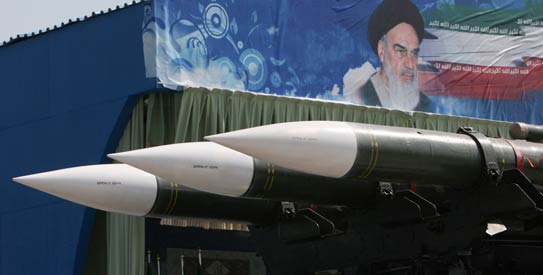
FORDO: Not far from one of Iran's most secretive nuclear sites, villagers proudly declare a willingness to sacrifice their lives to defend their country's nuclear program from attack by the West.
If history is any judge, the pledges by residents of Fordo are more than bluster. The village is already enshrined in Iranian lore for suffering the greatest per capita losses during the 1980s war with Iraq.
''I lost four family members to defend Iran against Saddam. I'm ready to sacrifice my blood and the blood of my other children to defend nuclear facilities against foreign threats now,'' said 73-year-old Kazem Koohi in his walnut orchard on the outskirts of Fordo, about 37 miles (60 kilometers) south of the holy city of Qom.
Statements such as these are often lost in the international showdowns with Iran. Despite huge internal political strife _ and disagreements about how to handle Western pressure _ many Iranians view the nuclear program as a point of agreement and a source of national honor.
The village and the bunker-like facility to make enriched uranium are separated by more than 50 miles (80 kilometers). Iran's message in using the village as a namesake for the nuclear site is unmistakably one of defiance. It also speaks to the determination to protect and expand its nuclear self-sufficiency despite threats of even greater international sanctions.
The underground uranium enrichment site could begin the process of making reactor fuel by early next year.
The Fordo enrichment site, whose existence was first disclosed in 2009, could represent a look into the future of Iran's nuclear program. Its labs are burrowed deep in a mountainside as protection against attack and satellite surveillance.
During a rare visit to the village of Fordo by an international news organization, many people made a seamless link between the 1980-88 battles against Saddam Hussein and the current nuclear standoff with the West.
Government permission was required for the visit, and a Culture Ministry official accompanied an AP reporter and forbid any photographs to be taken.
''That Iran's crucial enrichment site carries the name of our village is a matter of great pride for us,'' boasted Esmaeil Karbalaei, a resident of Fordo _ which had 104 battlefield ''martyrs'' in the Iraq war from a population of about 2,500.
The U.S. and its allies fear Iran's ability to make its own nuclear fuel will eventually lead to atomic weapons, because the technology offers a possible pathway to weapons-grade nuclear material.
Iran says it only seeks reactors for energy and research, but refuses to halt its uranium enrichment activities. It says it needs to keep the enrichment program to produce fuel for future nuclear reactors and medical radioisotopes needed for cancer patients.
Iran's Vice President Fereidoun Abbasi told a meeting of the International Atomic Energy Agency in Vienna last month that Fordo facility would likely start operating within six months.
Buried under 300 feet (90 meters) of rock, the facility is a hardened tunnel and is protected by air defense missile batteries and the elite Revolutionary Guard, Iran's most powerful military force. The site is located about 12 miles (20 kilometers) north of Qom, the religious nerve center of Iran's ruling system.
Alarm bells rang in the West in June after Abbasi said Iran would triple its output of higher grade enriched uranium _ 20 percent _ and move the entire program to the secretly built facility.
Low-enriched uranium _ at around 3.5 percent and even 20 percent _ can be used to fuel reactors for electricity and medical research. But if uranium is further enriched to around 90 percent purity, it can be used to develop a nuclear warhead.
But why would Iran need a bombproof enrichment facility under a mountain? To the West, Iran shouldn't need to build a secret enrichment site if its nuclear program is peaceful. And they conclude that Fordo is material evidence of Iran's nuclear weapons program.
Iran argues Israeli or U.S. officials refused to discount military action to destroy Iran's nuclear facilities. Iran's strategists also see the underground facility as a way to ensure continuity of Iran's uranium enrichment program under any circumstances.
Iran's main uranium enrichment site _ in Natanz in central Iran _ was assumed to be the first target of any possible military strike.
Analyst Mahdi Mohammadi says Fordo's strategic purpose is to deter an attack on Natanz.
''If the enemy knows that Iran has a facility to continue enrichment in case Natanz comes under attack, then the value of attacking Natanz is diminished to zero,'' he said.
Israel got the message almost immediately. Israeli Defense Minister Ehud Barak noted in 2009 that Fordo is ''immune'' to bombings.
The most powerful ''bunker buster'' bombs can penetrate up to 66 feet (20 meters) of earth or six feet (two meters) of reinforced concrete.












































